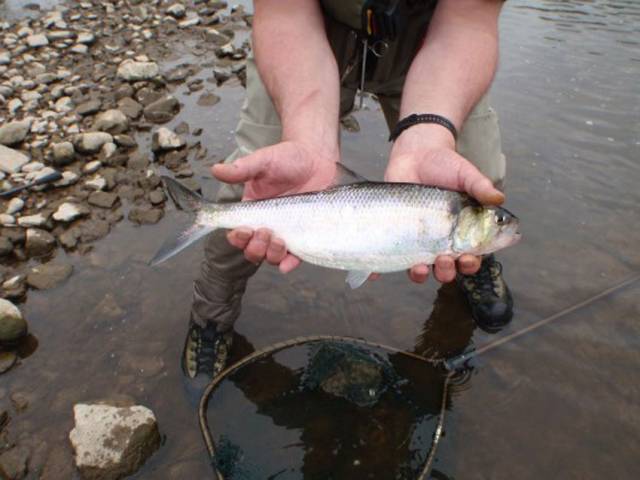#MarineWildlife - A new project which aims to promote international action and co-operation to conserve vulnerable migratory fish species launched yesterday, Thursday 28 March.
The DiadES initiative will see 30 partners from different countries participate in this European project, with Inland Fisheries Ireland (IFI) leading out on the project in Ireland.
The project launches as migratory fish and their habitats continue to come under pressure as a result of human activity and climate change.
It will focus on fish such as shads, lampreys, salmon, trout and mullet which are known as ‘diadromous’ fish as they migrate between fresh and salt waters to reproduce or feed.
The DiadES initiative intends to improve knowledge of the ecological, economic and cultural benefits offered by these migratory species while assessing the possibility of these species changing their locations due to climate change.
It will also examine the emergence of new interactions between fish territories as a result of these relocations.
In addition to collaboration across research and knowledge sharing between countries, the project will take a global multidisciplinary approach.
It will focus on several species across different geographical areas and involve researchers in the field of natural sciences and environmental economists as well as an experienced network of fish managers.
As part of the research, a transnational interactive atlas will be produced which will outline the current distribution of diadromous fish and how they help the ecosystem. This will forecast trends in the geographical distribution of various species and look at possible redistribution of some species as a result of climate change.
The programme will also design a platform for stakeholders to explore different management strategies.
Dr Cathal Gallagher, head of research and development at IFI, said: “Throughout their life cycle, diadromous fish provide ‘ecosystem services’. This means they provide food, regulate and support the ecosystem through the nutrient cycle and offer a recreational pursuit to local communities. All of these fish generate significant ecological, economic and cultural benefits for local communities across Europe.
“We are keen to play our role in assessing and enhancing the role these fish play while also assisting them as they navigate the effects of climate change which has resulted in a reduction in their distribution.”
The DiadES project is led by the French research institute Irstea and is financed by the Interreg Atlantic Area Programme of the European Regional Development Fund (ERDF) to the value of €2.2 million.
































































